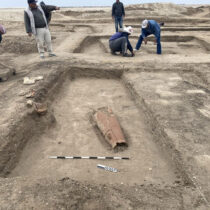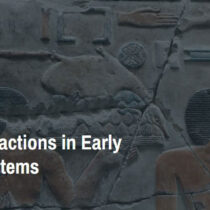In the summer of 1982, an interesting debate took place in the pages of the New York Review of Books. Four years earlier, the Palestinian literary critic and historian Edward Said had published Orientalism, in which he challenged the objectivity of European studies of the “East”. Said argued that far from being shaped by disinterested scholarship, Orientalism was largely a self referential system that had developed in conjunction with Western Imperialism, for which it served important functions. The publication caused a furor among the orthodox and, in June 1982, there came the official response. Writing in the New York Review of Books, the eminent historian of the Middle East Bernard Lewis counterattacked.
Lewis used the tactic of reductio ad absurdum. He put forward a hypothetical situation in which modern Greeks objected to what they saw as the biases of classical scholarship and therefore sought to overthrow it. He proposed this as analogous to modern Arab malcontents denying the scholarly objectivity of orientalism. Thus the latter charge was clearly ridiculous.
In his response to Lewis in the New York Review of Books of the 12th of August, Said argued that there was no comparison between the pure scholarship of the classicists and the use of orientalism as a handmaid of imperialism. He contrasted the great, liberal German Hellenist Wilamowitz-Moellendorf and the “orientalist”- Professor Milsom, then Israeli governor of the West Bank. Thus, despite their fundamental opposition to each other on almost every other issue, both Lewis and Said were agreed on the fundamental point that the discipline of classics was the epitome of disinterested, objective scholarship.
My recently published book The Fabrication of Ancient Greece 1785-1985, which is the first volume of a trilogy called “Black Athena: The Afroasiatic Roots of Classical Civilisation” is an attempt to challenge this assumption. In it, I argue that far from being detached and peripheral, the German academic discipline of Altertumswissenschaft, transposed into England as “Classics”, has been central to Northern European culture in the 19th and 20th centuries and that it has usually been highly “political”. Classics has incorporated social and cultural patterns in society as a whole and has reflected them back, to provide powerful support for the notion of Europe’s possessing a categorical superiority over all other continents, which in turn justifies imperialism or neo-colonialism as missions civilitrices.

